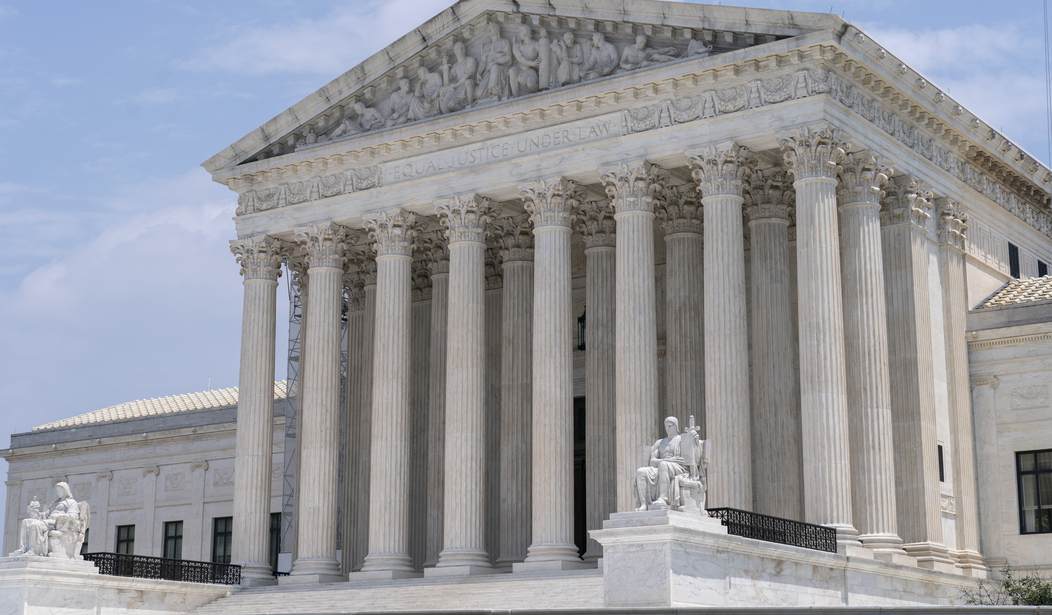Top News
Washington Post Editorial Board: The Supreme Court Should Toss the Colorado Decision

People (including our own Ed Morrissey) have been saying this since the decision appeared Tuesday but I’m still a bit surprised to see the Washington Post‘s editorial board making the same case. After laying out the basis of the Colorado decision under the 14th Amendment, the board points out “the law is not so clear.” The board argues that section 3 of the Amendment should probably apply to the president (which is what the Colorado Supreme Court found) but says that doesn’t really matter unless you’ve also concluded that President Trump did in fact commit insurrection in connection with Jan. 6. And on that point, the Colorado court is way out on a limb.
The armed mob that forcibly entered the Capitol with the purpose of preventing the peaceful transfer of power, they say, was surely carrying out an insurrection. By fomenting myths of election fraud; by urging supporters at least 12 times to travel to D.C.; by exhorting them to “take back our country” when they arrived; by ignoring pleas to tell them to leave; Mr. Trump “engaged,” they say, in that insurrection, too.
As Justice Samour points out in his dissent, however, what’s missing from the majority’s analysis is due process of law. Not only has Mr. Trump not been convicted of insurrection either by a jury of his peers or from the bench by a judge; he hasn’t even been charged with it. Tellingly, Justice Department special counsel Jack Smith has brought an aggressive case against the former president for conspiracy to defraud the United States, obstruction of an official proceeding and more — but not for violating the federal law against insurrection. The penalties for that, by the way, include disqualification from “any office under the United States.”
As the board warns, once you start down the road where any court can disqualify any candidate without due process, it won’t be just the progressive left jumping on this bandwagon.
Disqualifying a candidate based on an accusation, albeit one blessed by a state court judge as in the Colorado case — but not an actual conviction — is dangerous. What’s to stop a Republican politician from seeking to bar his Democratic opponent because the opponent attended Black Lives Matter protests, claiming that those protests, some of them nominally in service of abolishing the police, qualify as insurrection?
The answer of course is nothing whatsoever. All we need is a state supreme court made up of Republican appointees who can decide by a bare majority that, for instance, Kamala Harris gave aid to an insurrection by raising bail money for arrested BLM supporters who were burning down police precincts.
Now it may be true that Harris is a bit of a dunce and that the bail fund was used to spring people I’d rather sat in jail for a while, but it’s a long way from there to tossing her off the ballot in Texas or Florida. The editorial concludes, “In the absence of clarity, a body of unelected officials should be reluctant to prevent the country’s citizens from choosing an elected official to lead them. The Supreme Court, hopefully, understands that.”
I think that’s understating it a bit. Based on their own argument I think you could put it this way: In the absence of due process, a body of unelected officials should absolutely not be involved in preventing citizens from choosing an elected official.
In addition to the editorial from the board, the Post also published a similar take from columnist Ruth Marcus about the same time yesterday.
The three dissenting justices each wrote separately. The most interesting came from Justice Carlos Samour Jr., who said barring Trump from the ballot without legislation from Congress implementing Section 3 violates Trump’s due process rights, especially because Trump has not been charged with insurrection.
“More broadly, I am disturbed about the potential chaos wrought by an imprudent, unconstitutional, and standardless system in which each state gets to adjudicate Section Three disqualification cases on an ad hoc basis,” Samour wrote. “Surely, this enlargement of state power is antithetical to the framers’ intent.”…
…there is no world in which the justices are going to empower states to throw Trump off their ballots. Given that, the court should keep in mind: This is a moment it should aspire to be the unanimous court of Brown v. Board of Education, not the splintered, party-line body of Bush v. Gore.
On that last point, I agree. Now would be a nice time to see a 9-0 decision knocking the Colorado Supreme Court flat on their bums. Kurt Schlichter summed up the ideal result.
The ideal result – for the country – would be a devastating repudiation of this disgraceful CO ruling by a 9-0 SCOTUS, with the unequivocal and forceful reversal opinion written by Justice Sotomayor.
Hey, a patriot can dream, right?@hughhewitt @JonathanTurley
— Kurt Schlichter (@KurtSchlichter) December 20, 2023
Read the full article here


















